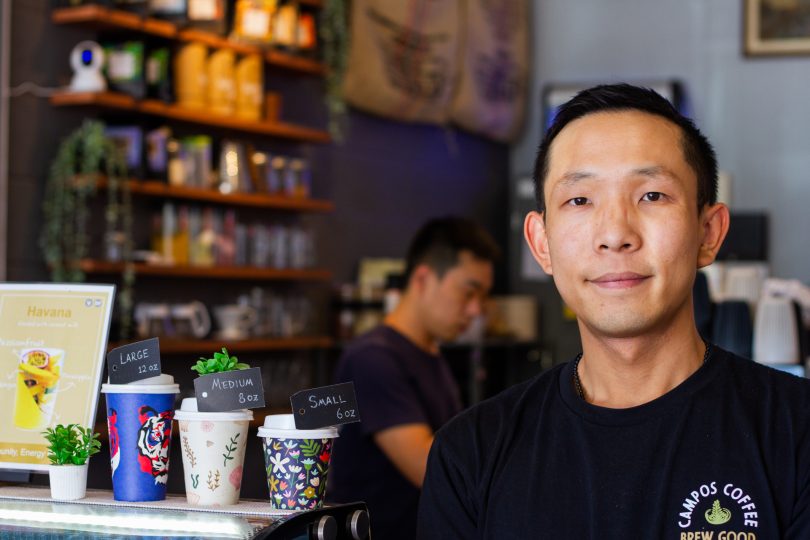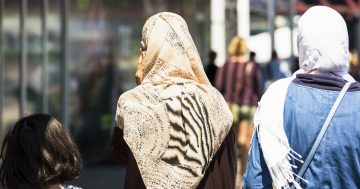
The owner of the Folks Gallery in Dickson, Vincent Chen, has called for more education after a racist incident at his cafe in March 2021. Photo: Dominic Giannini.
Earlier this week, Shadow Minister for Multicultural Affairs Giulia Jones wrote to the ACT Human Rights Commission calling for changes to make it easier to report racist incidents.
Reading about this, I was nonplussed.
Of course, anything that makes it easier for people to be held to account when they racially abuse culturally diverse community members is a good thing. But speaking from my own experience, I’ve never once considered reporting any of the random racism I’ve experienced over the years, and nor has anyone in my family or broader networks.
I can genuinely say it has never occurred to me. Partly this is because of the overarching narrative we have around racism, which is that the majority of Australians aren’t racist and that when racism does occur, it’s an unpleasant incident sparked by individual prejudice that has nothing to do with systemic racial inequality.
And when I think of the most overt acts of racism I’ve experienced, that narrative holds. I’ve had people yell abuse at me as I’ve walked across Garema Place. I’ve witnessed strangers spit in front of my hijab-wearing mother and tell her she and her family aren’t welcome here.
I’ve had white waitstaff put on an Indian accent to speak with me and offer me ‘curry’ (when it’s clearly not on the menu). I’ve had numerous randoms tell me to go back to where I came from, children bully me in school because I’m ‘brown like poo’, and the odd drunk guy request that I ‘bend it like Beckham’.
These people are not representative of the majority of the communities I’m part of, and I’m happy enough to chalk their abuse up to idiocy and prejudice on their part. This type of racism doesn’t keep me up at night. As soon as the unpleasant moment is over, I’ve moved on, and it genuinely has never crossed my mind to report it.
That’s because the type of racial prejudice that has had the most significant impact on my life is far less obvious and much harder to pin down in tangible evidence that could form the basis of a complaint to authorities.
It’s things like knowing that, based on research, I have a lower chance of being selected for interviews for jobs I apply for because of my non-anglo name; or being regularly confused for a fellow Indian employee by our white boss at a casual job (even though we looked and sounded nothing alike, and our names weren’t even a little similar); or having very little representation of diverse Australians in the media I consumed all through my childhood and adolescence; and having to counter stereotypes and caricatures where there was representation, adding to my overwhelming sense of alienation.
These experiences may seem trivial individually, but together form a broader pattern of dehumanising culturally diverse people, stripping us of our individuality and homogenising our experiences and attributes based on our race. But they’re not compelling cases for a report to authorities.
The fact is that when I have a stranger shower me with racist abuse in a casual interaction, my goal is usually to get out of the situation as soon as possible and try to forget all about it because it makes me emotional, frustrated and sad, and I don’t want to have to relive it or ‘prove’ it was racist to anyone else.
I applaud those who take up their right to report racism they experience, for their strength and commitment to holding others accountable, but I can also say I don’t know a single person who has taken that opportunity up.
So yes, it’s great that Giulia Jones, or anyone else in a position of power, is seeking to make it easier for people like me to report racism. But it’s equally important we address the root causes of racism and ensure our communities are supported to embrace and champion diversity so those incidents don’t occur in the first place.














